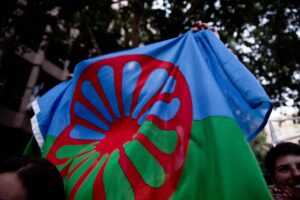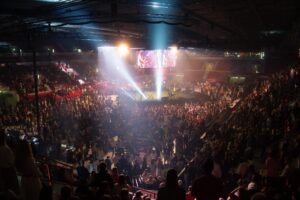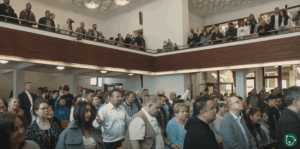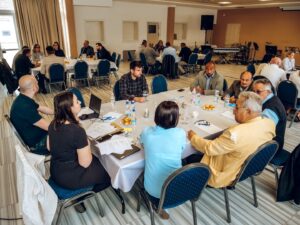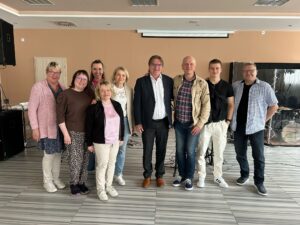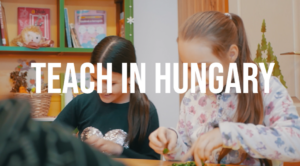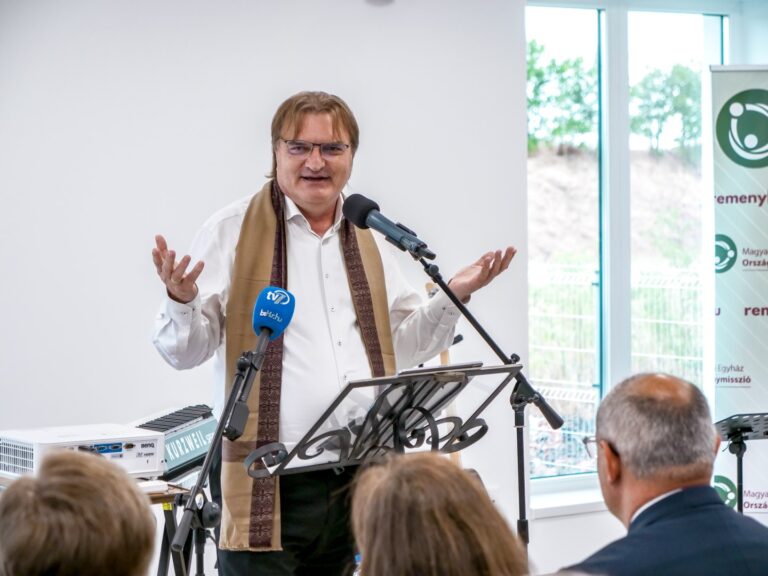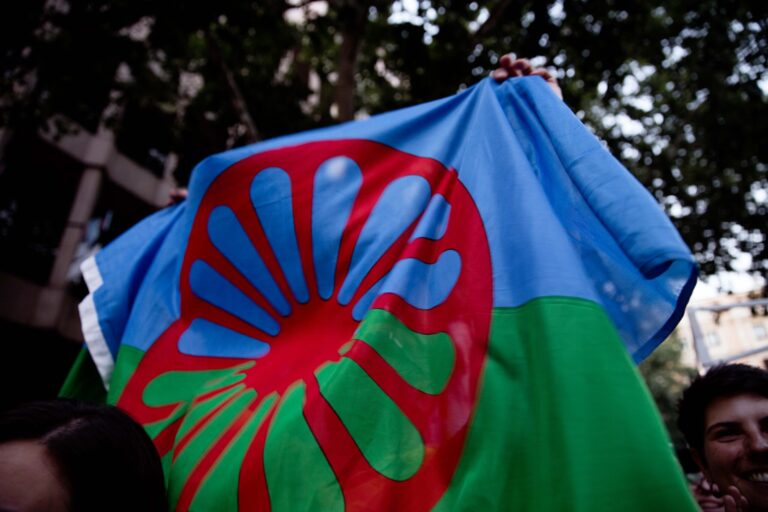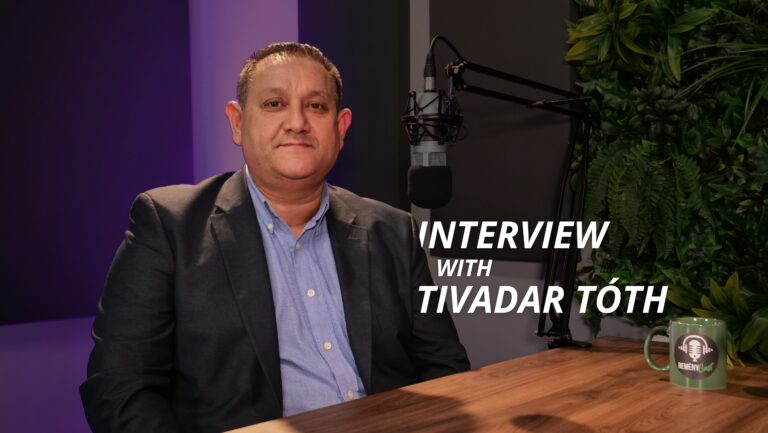The days around 24th December always bring something special to all of us every year: presents, shopping, Christmas tree, sweets, special food, cinnamon-scented candles, Mass celebration, large family gatherings or the opposite: loneliness, longing, drinking much alcohol… How do Roma Christian families live this out? I was talking to a young couple about the importance of Christmas.
Miklós Rézműves and his wife Klaudia live in Nyírvasvári, in Szabolcs-Szatmár-Bereg County of Hungary together with their five years old son, Ruben. They as newborn Christian Roma people got to know each other when attending a home cell group. Klaudia was singing, Miklós was preaching the Word. Miklós has been serving as a church planter at Hungarian Gipsy Missions International ever since.
Here is the script of our conversation about the power of traditions and faith…
? Klaudia, Miklós, could you recall, please how you celebrated Christmas at home with your families many years ago? ? sounds the first question in the light of the Advent candles.
? I was brought up here in Nyírvasvári. As far as I can recall, my mother gave us everything she could afford. Yet, she did not care about Christmas seasons. Maybe she was bitter because of many things ? Miklós starts the remembering. I was 6 months old when my father died. We, Olah Roma people had a feast of eating and drinking somewhere every day of the season starting with Christmas Eve until the second day of Christmas. The women and my mother also started to cook every traditional Roma food: cabbage leaves staffed with pork and rice, coated and fried pork (schnitzel) and chicken, fried ribs… They made a lot of food. My mother loaded our table with whatever she managed to make, even though is was only two of us there. But who knows when will somebody come to visit us, so she wanted to be sure they might see we have enough food and we don’t start the New Year with an empty table. We believed: if the table is full at this season, it will be full all year long. Everybody was preparing for this. If somebody did not visit his/her relatives that person got into trouble. Many of them were even ready to borrow money in order they would not be ashamed of their empty table.
? The people paid special attention to dress up nicely. Women put on nice headbands and skirts. They covered their heads during cooking to avoid any hair get into the foods ? Klaudia added.
The husband leads the conversation and the wife watches respectfully and appreciatively and sometimes says something ? as it is typical to Olah Roma families. Miklós continues.
? It was important for men to wear long-toed shoes, suits, white shirts to show it is festive season. They came and welcomed the festive season by saying good wishes to the family in Roma language: “Merry Christmas!” “Be strong and healthy!” The host answered to the good wishes saying “Let it be so.” We invited the relatives to sit down. The women had only one task: to offer food and drink to them. The guests stayed there for a while, they ate and drank and afterwards we joined them to visit an other relative. We got drunk very soon.
? The festive season was similar at our family: the relatives gathered together to drink and feast ? Klaudia remembers also. We raised a Christmas tree, but we had no presents. We only heard at school and from TV that other children got presents.
? Your traditions also created a strong bondage to your relatives. Have those relationships changed at all? Have the priorities changed after your conversion?
? Yes, indeed. Yet, if I want to be totally honest I miss those years of togetherness… Love grew very much colder even among Roma by now. Walls were raised up. Roma people don’t have a vision for the future and this makes them sad. Usury, misery and despair rules their lives in many places… There is only one solution for everyone: they need to follow Jesus Christ! ? Miklós declares categorically. Many things have changed since I converted to Christ. My mother raised me up alone. Before I became a Christian I used to vagabond a lot, I drank a lot of alcohol, I was addicted to slot machines. After my mother came to Christ we had meetings in our house. Since there was no other man in the house I had to stay with her out of respect. From the beginning I was standing at the door waiting desperately for the end of the meeting, so I could leave. But the Word of God touched me more and more and soon I came to Christ. As I started to read the Bible afterwards, I began to form my life to it. For us it is all about Jesus now. We teach Ruben according to it also. We decorate the Christmas tree and we give presents to Ruben, but the main point is not how expensive the present is, but he is happy to receive anything. We visit our relatives and we are ready to welcome them, but we don’t drink alcohol and we spend most of the time in the church. At our church we run the “Joseph program” what means we collect non-perishable food throughout the summer season and at Christmas Eve we take it to people in need. In summer time all church members bring some flour, sugar, spices, vegetable oil, pasta. Before Christmas we make a list of the items we have in store and make a plan how to sort them into packets. When we have the packets we take them to the 20-25 most poor families in each of the settlements related to our work and give it to them. Sometimes we created some special packets for the children also. Many kids started to cry, because it was the first present they have ever got in their lives. It was an unbelievable experience. I was deeply touched by it… It is not important for us to get something always, but we need to learn how to give also.
? This year we would like to visit them again where we usually minister: in Pilicse, Pilis, Káta, Nyírvasvári, Nyírmihálydi. The media usually declares that the baby Jesus was born at Christmas. I say Jesus is not that little baby. He is at the right hand of the Father and He rules even today. He is the Lord of the World ? Miklós shares his thoughts and finishes with conviction. Jesus was born to the Earth to save mankind. He had a single purpose: to complete the work what he came for. And He had completed it. He was born to save mankind…
Rita Patkás





